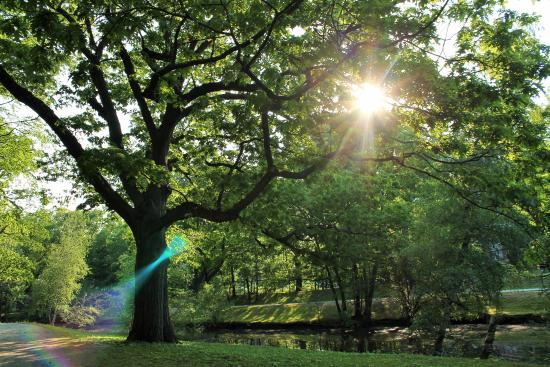FY21 Climate and Open Space Priorities
The FY21 budget plan includes investments to support a healthy environment, reduce energy consumption and greenhouse gas emissions, and prepare for climate change.
The response to the coronavirus pandemic continues to be Boston's primary focus, but it reminds us more than ever that we need to be vigilant to the crisis of climate change and harbor resiliency.
CLIMATE CHANGE
Boston’s climate preparedness program is critical to the City’s long term success. The Environment Department’s FY21 budget includes funding for a new deputy director of climate and environmental policy and a project manager for the new wetlands ordinance.
These positions will help continue the Resilient Boston Harbor Plan and begin to implement strategies that will increase access and open space along the waterfront while better protecting the city during a major flooding event.
Additionally, the City is investing $297,000 in new funding to support the Zero Waste campaign. This includes $100,000 in contract funds for Zero Waste outreach and a dedicated project manager.
The Zero Waste Boston program will work collaboratively with the Waste Reduction program in the Public Works Department to increase behavior change for residential waste and to improve the quality of resident’s recycling efforts.
With a new zero waste project manger in the Environment Department will strategically be promoting a recycling and composting efforts citywide across both residential and commercial sectors.
In an aggressive effort to reduce waste streams, in FY21 the City will invest $200,000 to launch a subsidized curbside composting pilot to reach 1,000 residential homes.
Additionally, the City will double the number of regional public composting sites through the Project Oscar program.
Open Space
Boston is committed to creating and maintaining clean, green, safe, accessible and climate-resilient open space as a key strategy in sustaining Boston’s world-class open space environment.
Building on the success of a second maintenance shift for downtown, in FY21 a second shift will be added to the Parks and Recreation Department's central maintenance yard to provide more park cleanliness during evening and weekend periods.
URBAN FORESTRYBoston's street trees are critical to the City's efforts to provide urban cooling and capture greenhouse gases. In FY21 the City will invest $500,000 for the urban forestry plan, as well as a $1 million increase in the annual street trees capital project. This will allow the department to significantly increase planting and maintenance of street trees while continuing to develop a holistic strategy to preserve and restore Boston’s urban tree canopy.
Boston will continue to prepare for climate change by investing at least 10% of all new capital funding to open space, infrastructure, and facilities projects that are climate resilient or contribute to making the City more environmentally friendly.
- A new $3 million Climate Resilience Reserve to be a resource for other projects to access to add climate resilient components to their projects without sacrificing core project goals.
- BCYF Curley Community Center will increase their budget by $15 million including $4 million of new climate resilient aspects.
- Copley Square will undergo a complete park redesign to include climate resiliency measures and new programming ability.
- Moakley Park Master Planning and Design which will prepare a large area into a multi-use, climate resilient park for all to use.


